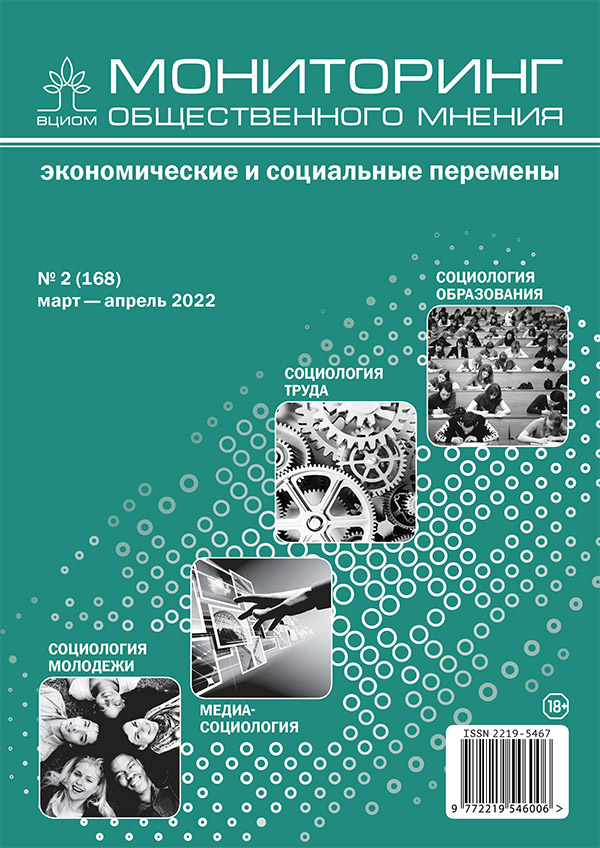Being and/or Knowing How to Be an Adult: The Growing Up Patterns of Early Millennials
DOI:
https://doi.org/10.14515/monitoring.2022.2.2141Keywords:
growing up, transit to adulthood, millennials, model of growing up, markers of growing upAbstract
The article presents two perspectives on transition to adulthood, namely: ideal-typical pathway which is described in terms of social expectations and individual transition to adulthood which is described in terms of personal perceptions of the process. The authors of this study understand transition to adulthood as a process that eventually results in a state characterized by several events set by society or individual. The events set by society cover separation from the parental family, obtaining education, entering the labor market and earning one's own income, creating one's own family, and having children. As the socio-economic environment changes, the parameters (markers) of adulthood might evolve, some of them get a new meaning, emerge, or disappear. This article analyzes the social and individual transition to adulthood of the Millennial generation — residents of Russian large cities (on the example of St. Petersburg and Ekaterinburg), the authors regard population aged 28—33 and 38—43 years old. The article presents arguments explaining how and why the vision of individual adulthood is changing, which idea of adulthood is presented in modern 30-year-olds and 40-year-olds, that is, the first generation that has undergone the transit to adulthood in modern Russia.
Acknowledgements. The authors express their gratitude to Elena Omelchenko, head of the project “Growing up of Russian youth in the 21st century: generational analysis”, and Nadezhda Nartova, project coordinator, for valuable advice in conceptualizing the main theses of the article. We also thank our colleagues Daria Petrunina, Anastasia Sablina, and Irina Lisovskaya for the joint collection of field materials.
Downloads
Published
How to Cite
Issue
Section
License
Copyright (c) 2022 Monitoring of Public Opinion: Economic and Social Changes Journal (Public Opinion Monitoring) ISSN 2219-5467

This work is licensed under a Creative Commons Attribution-NonCommercial-ShareAlike 4.0 International License.






